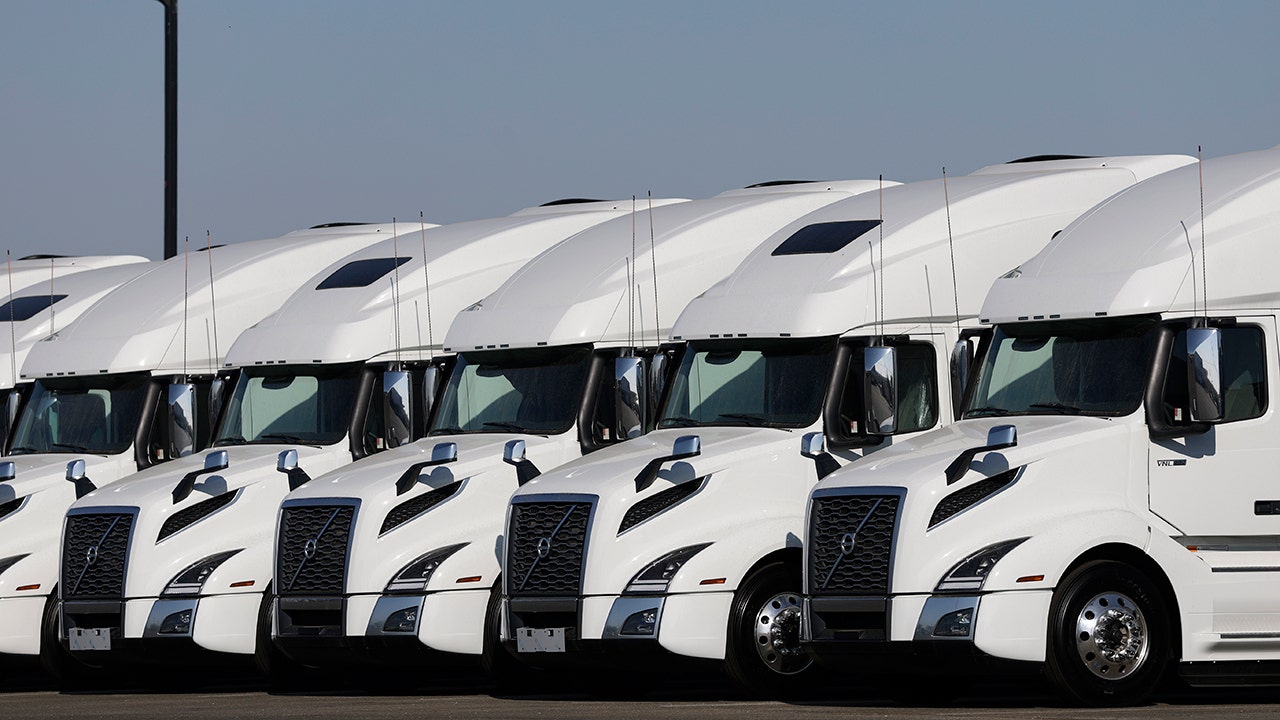In a significant advancement for the trucking industry, Waabi and Volvo Autonomous Solutions have unveiled a next-generation self-driving truck, integrating advanced AI technology to address driver shortages and enhance freight efficiency. The partnership, announced in early 2025, combines Waabi's AI-powered Waabi Driver with Volvo's VNL Autonomous truck, marking a milestone toward safe, scalable Level 4 autonomous operations.
The collaboration was highlighted in a recent announcement, with the integrated system now ready for further testing and potential commercial deployment. According to Waabi, the technology leverages physical artificial intelligence to enable trucks to operate without human intervention in defined conditions, potentially revolutionizing how goods are transported across the United States.
Waabi, founded by Raquel Urtasun, has been at the forefront of autonomous driving innovation. Urtasun, the company's CEO, emphasized the importance of this development in a statement: "The future of autonomous trucking depends on technology that is safe, scalable, and built for customer needs," she said. "Together with Volvo and NVIDIA, we're leading autonomous freight into a safer and more efficient era."
The Volvo VNL Autonomous is being produced at the company's New River Valley plant in Virginia, equipped with six critical redundant systems, including dual braking, steering, communication, computing, power, energy storage, and motion control. These redundancies are designed to ensure safe operations even without a driver present. Nils Jaeger, President of Volvo Autonomous Solutions, described the partnership as a step toward building a broader ecosystem for commercial deployment. "Autonomy has the potential to address some of the biggest challenges in the transport industry, including safety, efficiency, and capacity," Jaeger said.
Central to the system is Waabi's Driver, an end-to-end AI model that learns from experience and adapts to new conditions. The company utilizes its advanced simulator, Waabi World, to train the AI in millions of realistic driving scenarios before real-world application. This approach, termed "physical AI" by Waabi, allows the system to generalize across various environments while prioritizing safety.
The integration also incorporates NVIDIA's DRIVE AGX Thor and Hyperion 10 architecture, providing the computational power needed for autonomous operations. Rishi Dhall, Vice President of Automotive at NVIDIA, noted the significance of this collaboration: "Self-driving is one of the first frontiers in which we will see physical AI become a reality," he said. "Our purpose-built compute platform complements Waabi's pioneering end-to-end verifiable trucking system, and it's coming to life on the VNL Autonomous. Level 4 autonomy in trucking is happening now."
This development comes amid growing challenges in the U.S. freight market, including a shortage of qualified drivers, rising costs, and increasing demand for faster deliveries. Industry experts suggest that AI-powered trucks could help alleviate these issues by operating longer hours and reducing human error. Volvo's New River Valley facility is already producing these vehicles on a pilot line, integrating technologies from partners like Waabi and Aurora Innovation to ensure OEM-grade quality.
Shahrukh Kazmi, Chief Product Officer at Volvo Autonomous Solutions, praised the fit of Waabi's technology: "We are excited to integrate Waabi's cutting-edge system into our autonomous truck and jointly develop a safe, efficient, and scalable transport solution," he said. The partnership builds on previous investments, including Volvo Group Venture Capital's stake in Waabi in 2023 and participation in the company's $200 million Series B funding round in 2024.
Despite the optimism, the rollout of autonomous trucks faces several hurdles. Safety concerns top the list, as these vehicles must navigate unpredictable elements like weather, road debris, and interactions with human drivers. While simulations prepare the AI for countless scenarios, regulators are still working on certification processes for nationwide deployment.
Economic implications are also significant. Trucking employs millions in the U.S., and the shift to automation could transform job roles. Labor groups and state officials are advocating for retraining programs to assist workers in transitioning to new positions within the industry. Additionally, data privacy and cybersecurity are emerging priorities, given the trucks' reliance on cloud connectivity, which could make them vulnerable to hacking.
Public perception remains a key factor in adoption. Many support technological innovation but express hesitation about sharing roads with fully autonomous vehicles. Building trust will require transparent safety trials and a proven track record. As one report noted, the integration represents a push toward Level 4 trucking, but broad commercial deployment will depend on addressing these challenges.
The collaboration between Waabi and Volvo is not isolated; it reflects broader industry trends. For instance, similar partnerships, such as those with Aurora Innovation, are helping Volvo deliver consistent, high-quality autonomous solutions. The New River Valley plant's role underscores Virginia's growing importance in automotive manufacturing and innovation.
Looking ahead, the companies have completed the initial integration and are focusing on testing for Level 4 operations. This level allows the truck to handle all driving tasks in specific conditions without human input. Experts predict that successful deployment could lead to reduced shipping delays, lower costs, and safer highways by minimizing fatigue-related accidents.
For consumers, this means potentially faster and more reliable deliveries, especially for online shoppers. The technology could also contribute to smoother traffic flow by reducing freight-related disruptions. However, the transition raises questions about the balance between technological promise and societal impacts, including employment shifts and ethical considerations in automation.
As autonomous trucking moves from concept to reality, stakeholders emphasize the need for responsible development. The road ahead involves not just technological milestones but also navigating regulatory, economic, and public landscapes. With partnerships like this, the industry is poised for transformation, though the pace will depend on how effectively these multifaceted challenges are addressed.
